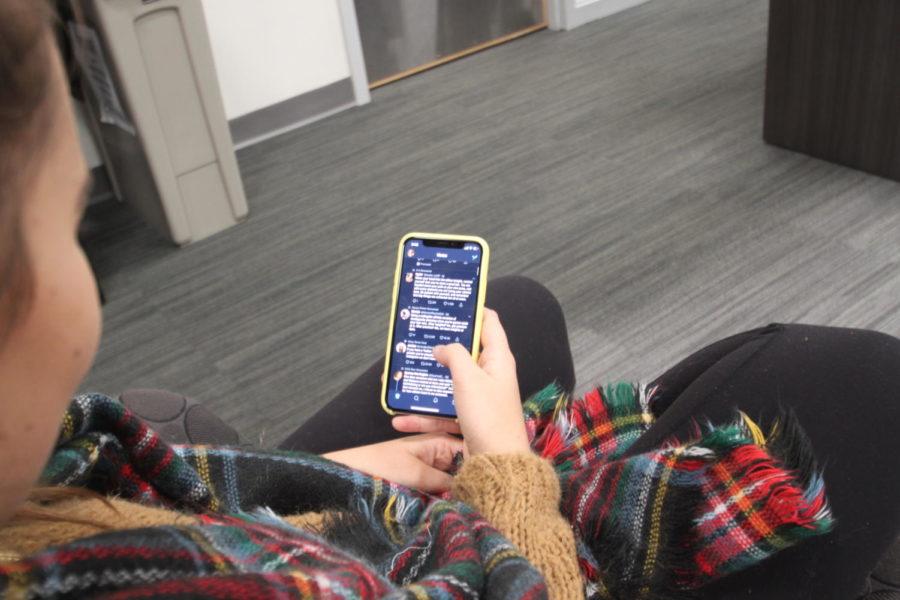Wells: Twitter’s ‘cancel culture’ is toxic
Editor-in Chief Annelise Wells argues “cancel culture” is a toxic phenomena on Twitter that should not be tolerated. Wells believes people should be given the chance to grow and learn from their mistakes, rather than be “canceled” and denounced on Twitter.
November 14, 2019
There are benefits and drawbacks to more people living their lives on Twitter and constantly being connected online. To be honest, I am no saint and am definitely one of those people who spends way too much time scrolling through the app and refreshing my timeline for the umpteenth time.
A recent harmful phenomena that is very evident on Twitter, and is a result from the uprise in social media in general, is what is known as “cancel culture.”
Cancel culture happens when a public figure or celebrity is boycotted and shunned, therefore making them “canceled.” This can happen for something they have done in their past, something they post that is controversial or a pop culture event they are involved in.
It’s easy to see when people band together on Twitter and “cancel” someone, as a hashtag of #____IsOverParty or #_____IsCanceled can be trending within minutes of the incident with thousands of tweets in on the conversation. It can be hard to escape these tweets at times, even if you have never heard of the celebrity or person in question.
Cancel culture is based on ignorance, and enforces the idea that we can’t grow as people and learn from our mistakes. It takes away the opportunity for productive conversation and understanding.
People on the internet are quick to “cancel” someone without knowing the whole story or if what they read in one person’s tweet is true or not. It’s easy to jump on the bandwagon and bash on whoever’s turn it is to be “canceled” that day.
While some of the criticisms come deservingly for notable missteps, others are just for someone voicing an opinion that varies from the norm.
But no matter the reason’s severity, being denounced by millions of people on Twitter really doesn’t change anything. It may change how that person’s career goes in the future, but it won’t undo what happened or what was said.
If you were “canceled” by all of your friends after one mistake you made five years ago, and one day woke up to everyone bashing you and pretending the rest of your accomplishments and relationships didn’t exist, I don’t think you would think of that as very fair.
Someone’s whole career shouldn’t be “canceled” by a tweet dug up from 15 years ago, and trending a hashtag denouncing someone just creates unnecessary drama. Instead of canceling someone, take the time to have productive conversations if needed, or just move on.
We all make mistakes, whether that is your best friend, your mom, your professor, your favorite actor or your favorite singer. Give others the chance to learn from their missteps and grow as a person — it’s hard for them to learn if you don’t give them the chance to. It all comes back to the Golden Rule; just treat others how you want to be treated, especially when times get hard. Treat people with respect and understanding — it’s not that difficult.







